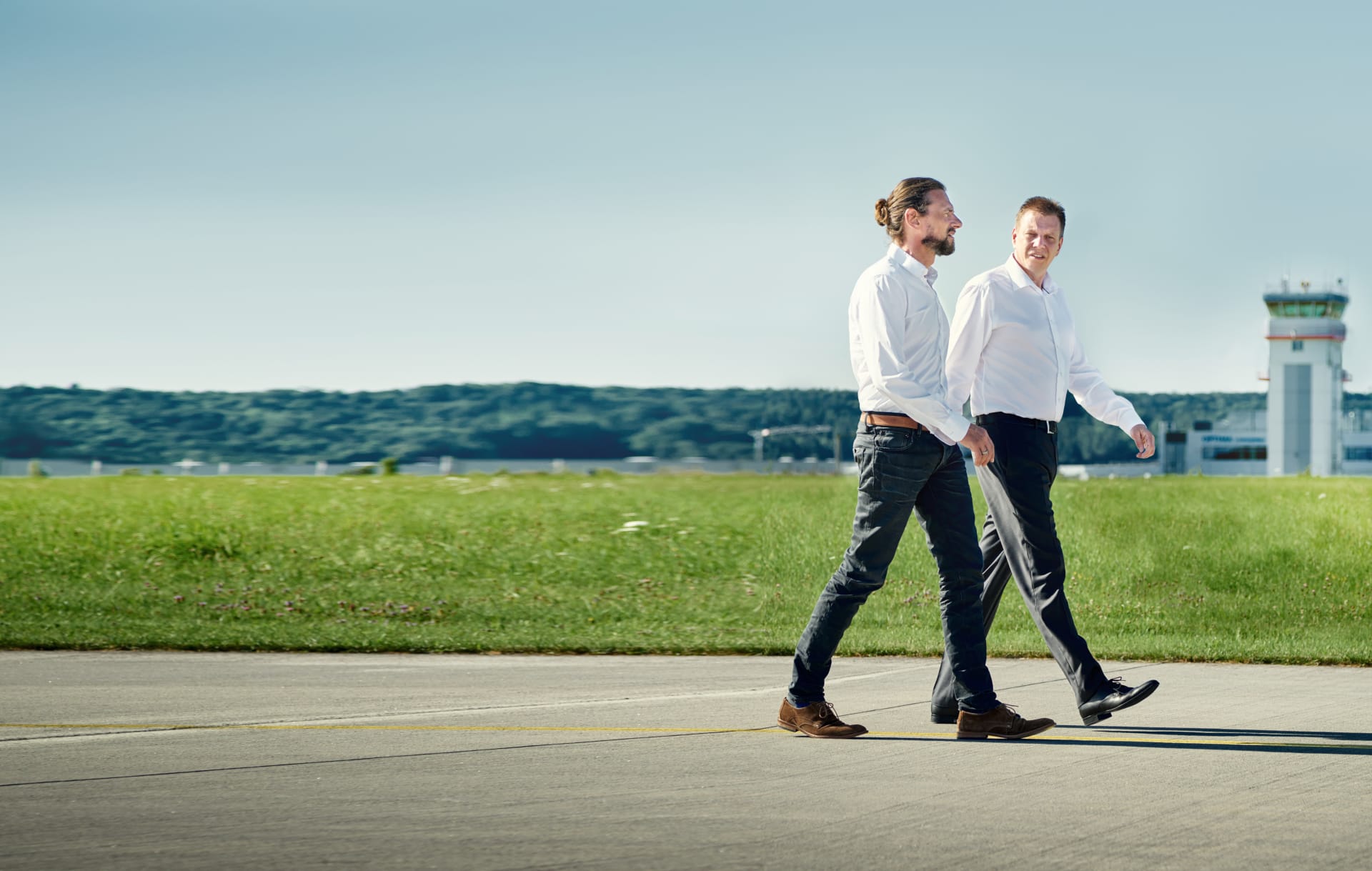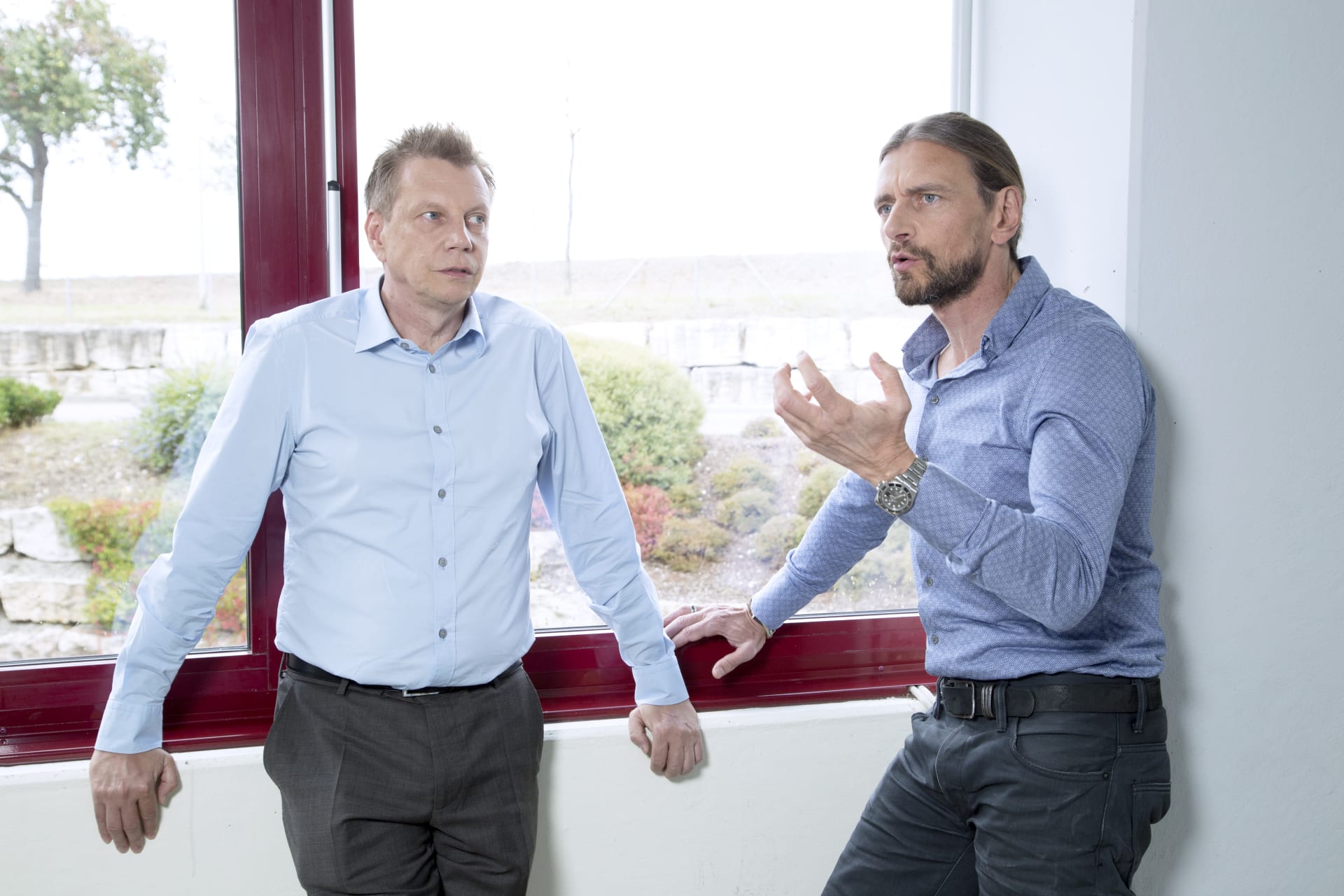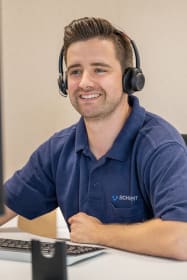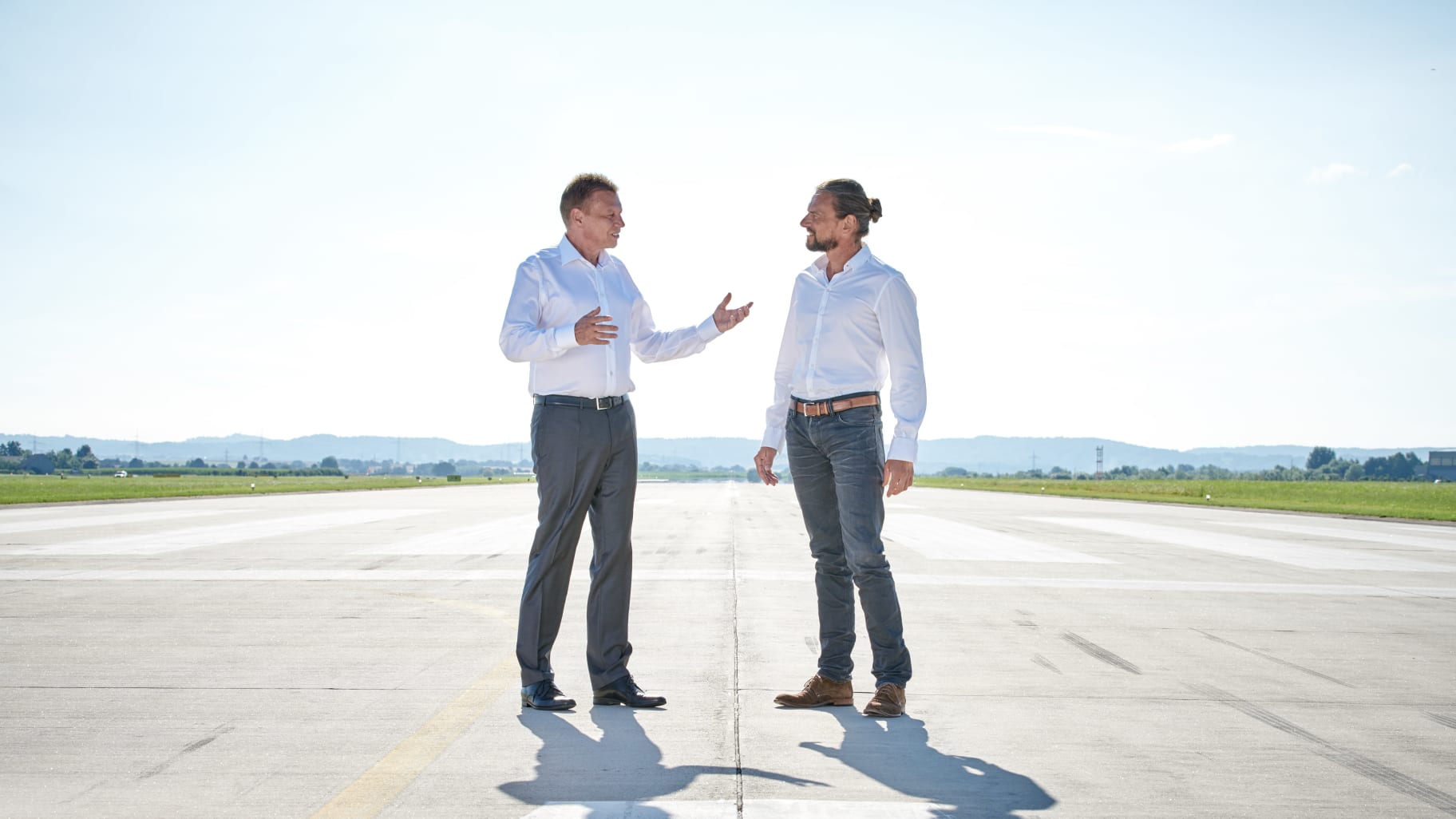Schubert is celebrating its 50th anniversary this year. What does this mean to you?
Gerald Schubert: Our roots provide the basic foundation for our future. Past, present and future are always intertwined, but always with our objectives firmly in view and looking ahead. Above all else, we are focused on the future.
You see your employees as being decisive to your company’s success. What qualities are important for you in the people who work for Schubert?
Gerald Schubert: For me, it’s important that an employee is down to earth and honest. We attach great importance to how we all deal with each other. We have to share common values. I don’t want employees who are just here for the money. We especially need people who identify with the company and who are enthusiastic about their work.
At Schubert, it’s not unusual that employees work for the company for a very long time. What is behind the fact that people are so happy to work at Schubert?
Ralf Schubert: It’s important that employees feel how important they are. After all, they are the ones who transform the company into something very special. What I feel in our case is a sense of enthusiasm that is very contagious. For a creative mechanical engineering company such as ours, the decisive factors are respect and honesty.
So how will you ensure that Schubert also remains innovative over the next 50 years?
Gerald Schubert: I believe we have a kind of “innovation gene” here at Schubert. We don’t question whether we will be innovative in future – we just are.
Ralf Schubert: We simply want to make good machines and solve our customers’ problems. These challenges automatically lead to innovation and good ideas.

How do you convey this spirit of innovation to the workforce?
Gerald Schubert: We place a lot of trust in our employees and we give them freedom, enabling them to generate the momentum that we are looking for. Our employees know that what they do can make a difference. This creates a great sense of solidarity. We are inventors and team players all rolled into one – that’s how I see the company as a whole.
Can you steer the development of ideas?
Ralf Schubert: I am firmly convinced that we are good because we also leave some things to chance where innovations are concerned! You simply can’t plan for everything. And all the more so, you can’t just keep on asking “What do innovations cost?” In my experience, the costs most often do pay off and what’s more, innovations and investments can even bring costs down!
How do you get new ideas?
Ralf Schubert: Do you know when I get the “best” ideas? When I’m under pressure! That’s how the counter-flow principle came about. We needed a very specific solution for our customer. I thought about it day and night. Then the idea came to me. Of course there are people who can’t handle pressure. It’s a good thing that we’re all different. (laughs) I see it as an opportunity to be the first to achieve something – and, if we’re lucky, it might even be a major development.
Ideas can be simple – but not every single one can be a breakthrough idea.
Ralf Schubert: Of course not. We often have too many ideas in our company. Really! Sometimes I even have to step on the brakes myself. But seriously, we invest close to ten per cent of our turnover into research and development, well above the industry average. Of course there is a lot of trial and error. But this is exactly the kind of creative process we need.
So, from your perspective, what is the prerequisite for creativity?
Ralf Schubert: In a team where everyone is the same, there isn’t much room for innovation and there aren’t any great ideas. Creativity can only arise when you bring together different types of people and create the right atmosphere for dialogue and communication.
What timeframe to you have in mind when it comes to innovation?
Ralf Schubert: We think very far ahead, at least five years. We always have to get our creative ideas face to face with market requirements, to have an idea today of how our machine will look in the future – and what benefits it will bring to our customers.
Let’s look towards the future. Where are you taking your packaging machines? What are the next steps?
Gerald Schubert: We are now heading towards the development of the next generation of control systems – the Uni 7. We are looking to generate even more control system data that we can then use to the customer’s benefit.
Ralf Schubert: Machines will be even simpler in the future, needing fewer interfaces and therefore becoming less prone to breakdowns. We will also need fewer parts. We will have to deliver greater integration. This means that it has to be possible to integrate even more devices more easily.

Ralf Schubert (left) and Gerald Schubert
And what are the most significant developments in your industry?
Ralf Schubert: We are currently experiencing digital disruption. Platforms are popping up everywhere. Take myTaxi that belongs to Mercedes. The platform decides which taxi in Cologne will be going to the Central Station. So what does this mean for packaging machine manufacturing? We need to be thinking in a digital, networked world.
Gerald Schubert: We will definitely be turning more and more into data collectors. We can use this continuous flow of data to meet our own and our customers’ requirements. This is what we are looking to bundle with our “digital platform“, which my brother is currently working on.
So what will the digital platform be depicting?
Ralf Schubert: The platform we are currently planning will enable us to stay connected with customers throughout a machine’s entire value creation process. We will use this data system to capture all relevant information – from simple machine operation to networking workflows, maintenance units and servicing periods. The data pool will be available from anywhere, giving both us and our customers continuous access to details as well as an overview of all performance data. This is communication at an extremely high level. And I really can’t imagine a better kind of 24/7 service.
And what about the whole issue of data security?
Ralf Schubert: There will be different levels of access to be approved depending on the level of authority. This authentication will also ensure that employees are not inundated with information they may not even need.
And what might the platform look like in the long term?
Ralf Schubert: The idea is that, one day, all departments and stakeholders can communicate via the platform: customers, Sales, Parts Supply, Purchasing, Parts Production, suppliers, Assembly and Service. This will deliver powerful benefits and amazing efficiency, considerably relieving the work flow.
One core component of the platform is the digital twin currently being developed by Schubert…
Ralf Schubert: Yes. The digital twin makes it possible to illustrate and map our machines accurately as 3D models on a computer and simulate packaging processes. This delivers huge benefits. Before we even commission a system, we can display and operate assemblies and products virtually in real time. This means we can reduce machine throughput times and additional requirements by 30 per cent!
I assume the combination of platform and digital twin will entail benefits in terms of preventative fault diagnosis and maintenance?
Ralf Schubert: That’s right. Ideally, the digital twin will automatically report that this or that part and component needs to be replaced in four weeks. We want to achieve a one hundred per cent fault diagnosis in our equipment and I’ll even go one step further. I call it “preventive diagnostics”. With a computer-controlled assistance system like this, we can also make TLM machine maintenance and operational staff even happier! We are most definitely driven by a craving for perfection.



